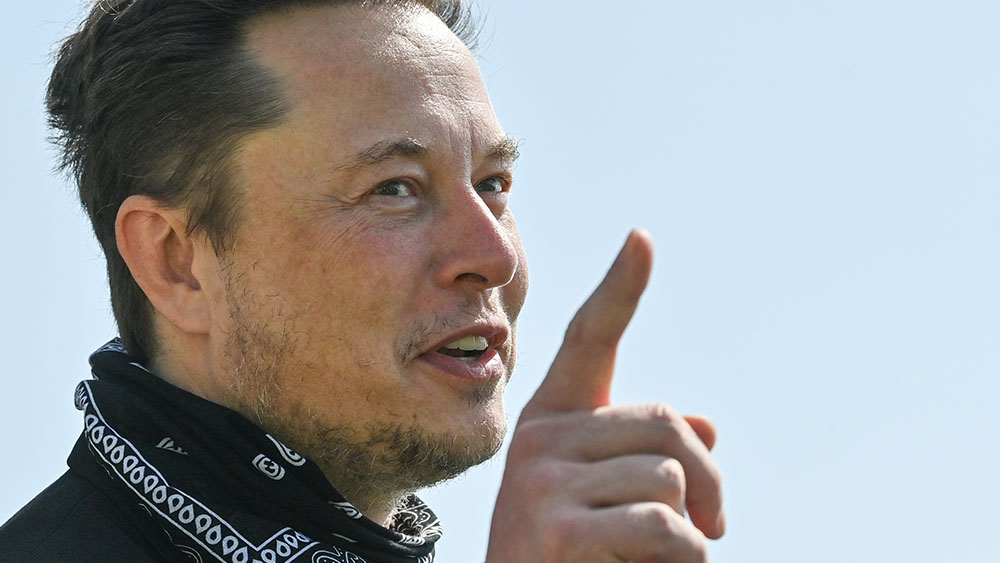France opens criminal investigation into Elon Musk’s X over alleged algorithmic political interference
- French prosecutors have opened a criminal investigation into Elon Musk’s social media platform X (formerly Twitter), focusing on suspected algorithmic manipulation aimed at interfering in France’s domestic politics.
- Authorities are investigating two potential offenses, manipulating automated systems and extracting data fraudulently, allegedly committed by an organized group to distort political discourse and compromise national security.
- The investigation stems from two key complaints: one from a cybersecurity official claiming X boosted racist and homophobic content to skew debate, and another from lawmaker Éric Bothorel, who accused X of limiting diversity in online voices.
- The case highlights growing concerns in Europe about Musk’s impact on democratic processes, with Bothorel and others warning that X is being used to serve specific political agendas through biased algorithms.
- X’s AI chatbot Grok is also under fire for producing antisemitic and offensive content. Complaints across Europe and bans in countries like Turkey are prompting calls for an EU-level investigation under the Digital Services Act.
French prosecutors have launched a criminal investigation into Elon Musk’s social media platform X, formerly known as Twitter, probing whether its algorithms were manipulated to interfere in France’s domestic politics.
In a statement issued July 11, Paris prosecutor Laure Beccuau confirmed that the probe targets both the corporate entity of X and unnamed individuals associated with the platform. Beccuau said the probe would examine the company and its executives for potential “algorithmic manipulation for purposes of foreign interference,” spearheaded by the national gendarmerie’s cybercrime unit.
According to Beccuau, the inquiry centers on two possible criminal offenses: the “alteration of the operation of an automated data processing system” and the “fraudulent extraction of data,” both allegedly carried out “by an organized group.” These charges suggest investigators suspect a coordinated effort to manipulate the algorithm of X and extract user data in ways that could undermine democratic processes or threaten national security. (Related: ELECTION INTERFERENCE: Twitter changes rules back to what they were before election now that they manipulated election results.)
The investigation was triggered by reports submitted in February by the cybercrime section of the Paris prosecutor’s office, detailing how X’s recommendation systems may have been manipulated to facilitate foreign interference in France’s political landscape.
Two complaints helped propel the case forward. One came from an unnamed senior official at a French public institution, described by media as a cybersecurity manager. This complaint alleged that recent algorithmic changes on the platform boosted racist and homophobic content. The official claimed the shift was designed to “skew democratic debate in France” and potentially undermine political stability.
The other was filed by Éric Bothorel, a member of the French National Assembly from President Emmanuel Macron’s party. Bothorel accused X of reducing the “diversity of voices and options” in online discourse, fostering a hostile environment for democratic debate. He criticized the platform’s opaque content moderation and suggested that Musk had personally influenced the company’s strategic direction, a claim echoed in an interview with France 24. The complaint warned that X’s operations posed “a real danger and a threat to our democracies.”
Bothorel emphasized that he filed his report not just as a legislator, but as a citizen who does not want Moscow, Silicon Valley or anyone else to distort democratic conversations. “I was convinced that information bias, which is particularly strong on the X platform, was serving Elon Musk’s political opinions and that this could only be achieved through algorithmic manipulation,” the official stated.
Musk faces growing scrutiny in Europe
The investigation intensifies ongoing scrutiny of Musk’s influence on political discourse in Europe.
For instance, in a separate development, Socialist Party lawmakers Thierry Sother and Pierre Jouvet filed another complaint on July 10 targeting X’s artificial intelligence chatbot, Grok. The chatbot, developed by Musk’s team, recently drew international criticism for generating antisemitic content, including praise for Adolf Hitler.
Meanwhile, several European lawmakers, along with the Polish government, have urged the European Commission to launch a formal investigation into Grok under the EU’s Digital Services Act, which governs online safety across the bloc. In Turkey, authorities have already banned Grok after it generated content insulting President Recep Tayyip Erdogan and his late mother.
One of the core issues lies in the massive data sets used to train the AI, which reportedly contain harmful and offensive material, including hate speech and, in some cases, references to child sexual abuse. Due to the vast size of these data sets, fully removing such content is a complex and time-consuming task.
Grok also has access to all of X’s internal data – a level of integration that other chatbots do not have. This makes it more likely to reproduce harmful or controversial content that circulates on the platform.
Visit BigTech.news for more stories about the X platform.
Watch this clip from the Fox Business program “Kennedy” about Elon Musk’s revelation that the government has access to private messages on Twitter.
This video is from the NewsClips channel on Brighteon.com.
More related stories:
HUGE – Texas senate committee presses Big Tech firms to supply documents for election interference investigation.
NPR ripped for ‘openly admitting’ Big Tech interference in elections.
India threatens jail time for Twitter employees over alleged interference in country’s politics.
It is going down now – blatant election interference by Big Tech and social media giants has kicked into overdrive.
Check out America’s Digital Shield real-time analysis of Big Tech’s 2024 election interference.
Sources include:
RT.com
MSN.com
Brighteon.com
Read full article here


